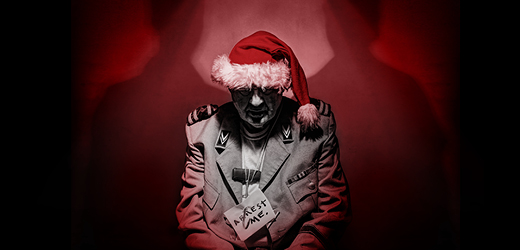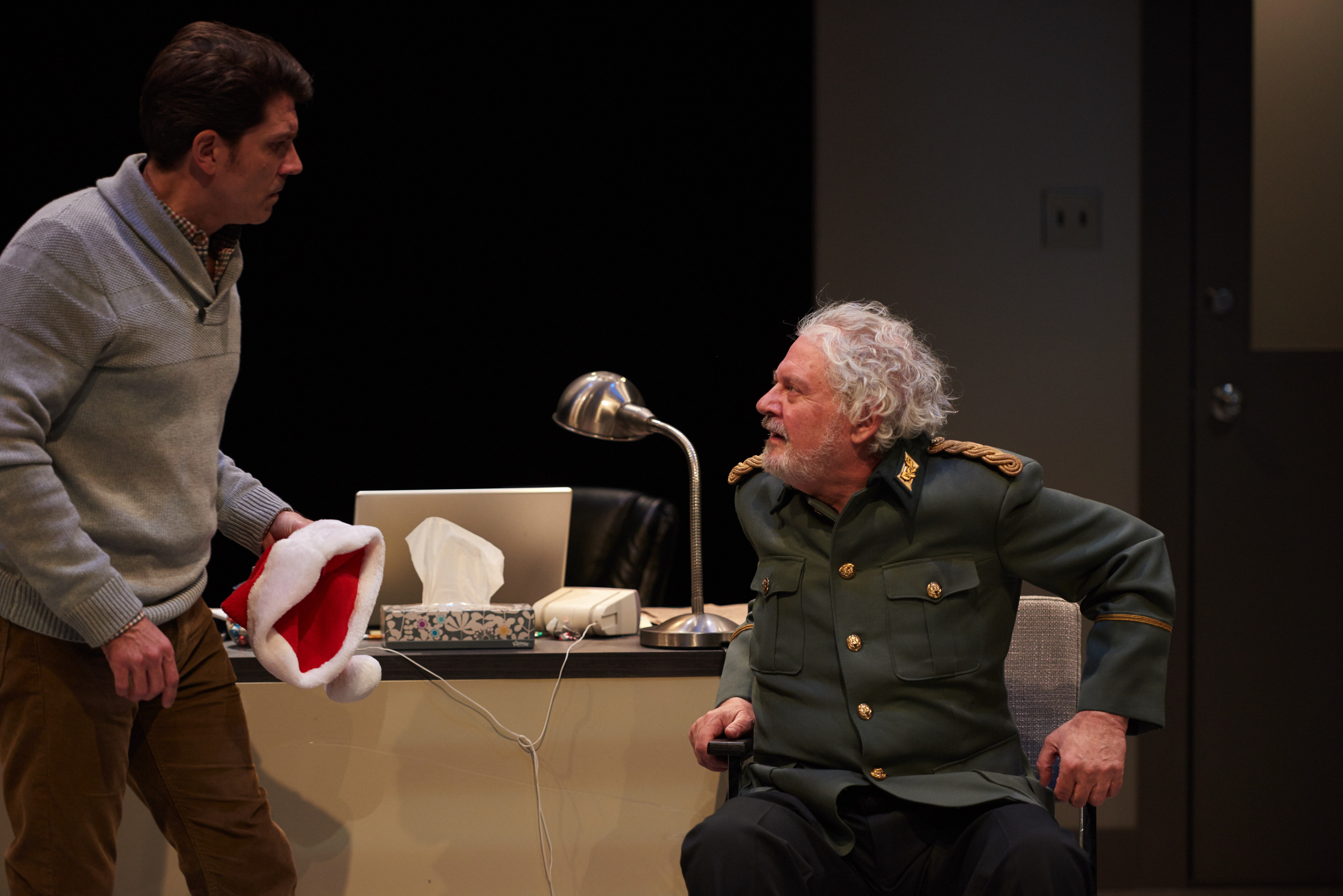In My Community: Butcher
The most important stories are the ones which make us uncomfortable. The ones which force us to take a long, hard look at ourselves in the mirror and ask "what would I do? How would I react?" and then grapple with the response.
Butcher, a play by Canadian playwright Nicolas Billon, which is currently showing at the Prairie Theatre Exchange, is an example of modern storytelling which forces that kind of brutal, disturbing introspection.
Full disclosure: I was offered these tickets by the PTE in exchange for writing this article. I want to point that out because I want to be honest with you guys about when I get something for free, and also because I want to point out that what I'm about to say was in no way influenced by their offer. I was blown away by this play, and can't say enough good things about it.

A brief overview
Butcher is a play which starts with an old man who shows up at a police station wearing a military uniform, a Santa hat, and a meat hook draped around his neck. He doesn't speak English, but he's got a lawyer's business card stuck onto the meat hook with the words ARREST ME written on it.
Then, a series of scenes begin to unfold inside a single room between a detective, a translator, the lawyer, and the old man, which explore ideas around justice, vengeance, genocide, and forgiveness.
The play is full of twists and turns, and many times I found myself gripping my seat in anticipation. I don't think a play has ever moved me, or made my heart pound as hard in fear, as Butcher.
What makes it good?
I know I just said I wasn't going to spoil anything, but this one is necessary to actually review the play: the old man turns out to be "the Butcher, " a war criminal who ran a concentration camp during a civil war in the fictional country of Lavinia. The Butcher is wanted by two groups: Interpol, and a group of rebel survivors called The Fjurioji, or the Furies.
Butcher is comprised of a series of conversations about the brutalities of war, the kinds of inhumane things that humans can do to one another, and the cycle of violence that is continually perpetuated by hatred and revenge. It explores these ideas so deeply, and in such a visceral and compelling way that I found myself moved to tears or squirming in my seat on several occasions.

One example is when the old man is forced to confess his worst war crime. Most of what his character says is translated through the other characters, but in this case, as he describes his horrific, brutal actions, the audience can only rely on the reactions of other characters to interpret the severity and brutality of his actions.
This scene, where the audience was left to imagine the atrocities committed by a war criminal, was just one of many where I found myself cringing and feeling uncomfortable. It also served to illustrate how far-removed most Canadians are from the atrocities of war: even when someone is spelling them out for us, we still can't manage to comprehend what those experiences are like. It's like they're speaking another language.
Moving & thought-provoking
Lately it's hard not to feel like the whole world has become engulfed by fear and anger. From the recent Paris attacks, to the deplorable comments being shared across social media about Muslims and the Syrian refugees, it's terrifying to see how easily fear can enter our hearts, and stay there.
Butcher shows us how easily we can become consumed by our lust for revenge, and how even the most innocent among us can become twisted, mutated versions of ourselves when subjected to enough horrors and traumatic experiences. That when we treat others with hatred and fear, those people become permanently damaged or broken by it, and can only turn to more violence and hatred to try and fill the hole that our actions carved in them.
This idea, that the cycle of violence is a self-perpetuating process than can only be halted with deliberate kindness and forgiveness, was a powerful message which, I think, couldn't be more relevant to current global issues. Fear and division are powerful manipulative tools, and we have a responsibility to try and act better than the people who have mistreated us, or acted with hatred in their hearts.
With that in mind, I highly recommend that everyone check out Butcher while they can (it's running at the PTE until December 6, 2015). You won't be disappointed.
**I'd like to thank the Prairie Theatre Exchange once more for providing me with tickets to see this outstanding play. I was moved and humbled by Butcher, and can't recommend it enough.
